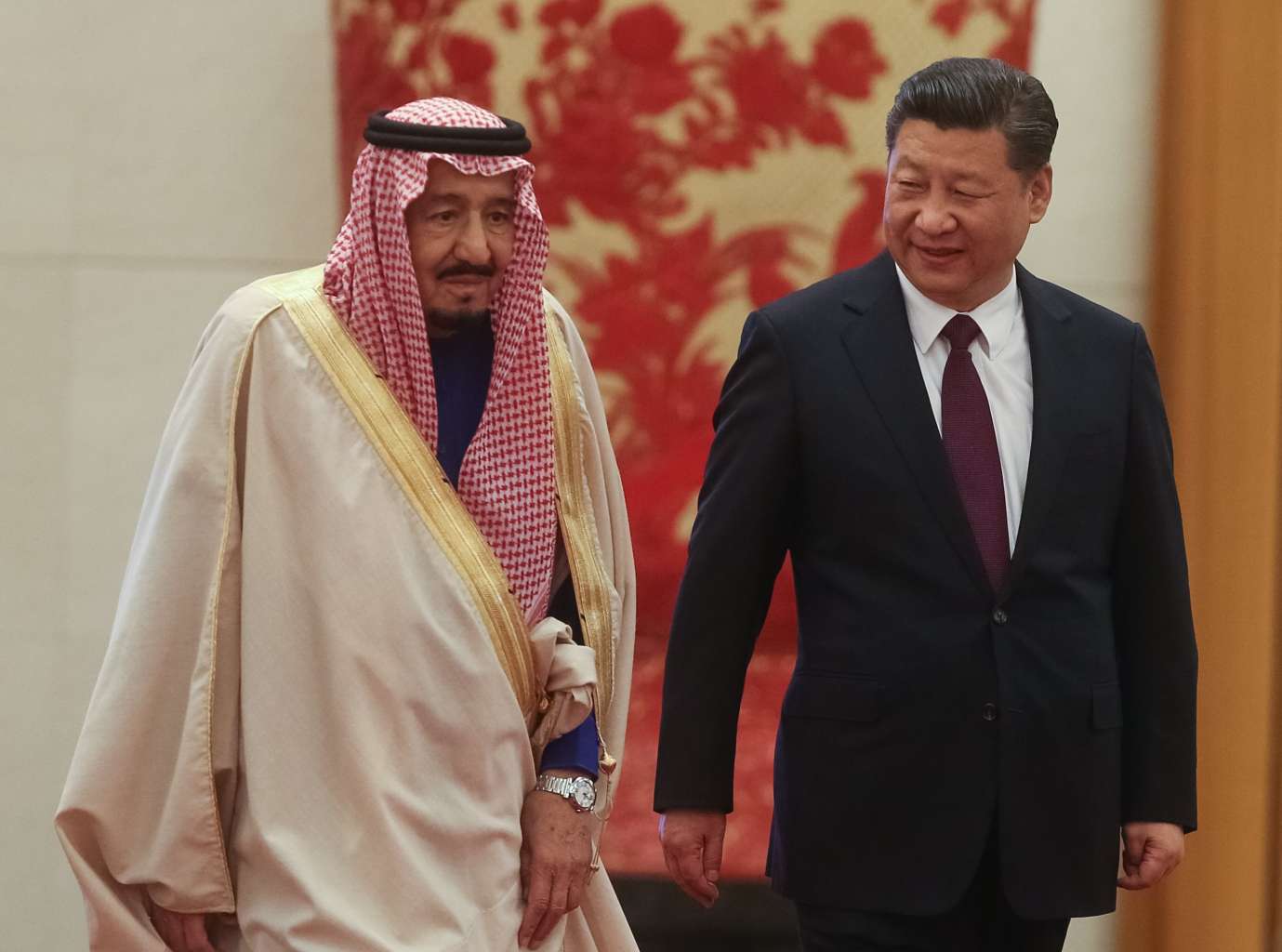China, Saudi Arabia sign agreements worth about $91 billion
Sign up now: Get insights on Asia's fast-moving developments

Chinese President Xi Jinping and Saudi Arabia's King Salman bin Abdulaziz Al Saud during a welcoming ceremony at the Great Hall of the People in Beijing, China, on March 16, 2017.
PHOTO: EPA
BEIJING (REUTERS, AFP) - China and Saudi Arabia on Thursday (March 16) signed MOUs and letters of intent potentially worth about US$65 billion (S$91.8 billion) during Saudi King Salman's visit to Beijing, a senior Chinese diplomat said.
Deputy Chinese Foreign Minister Zhang Ming said the agreements involved investment, energy, space and other areas, but did not give details.
The octogenarian monarch, who has overseen the launch of an ambitious economic reform plan since his accession two years ago, is on a month-long Asian tour. The visits to countries that are some of world's fastest growing importers of Saudi oil aim to promote investment opportunities in the kingdom, including the sale of a stake in its giant state firm Saudi Aramco.
Saudi Arabia has sought to boost oil sales to China, the world's second-largest oil market, after losing market share to Russia last year, by working mostly with China's top three state oil firms.
Chinese President Xi Jinping told Salman his visit showed the importance he attached to relations with China. "This visit will push forward and continue to improve the quality of our relations and bear new fruit," Xi said.
The octogenarian monarch, who has overseen the launch of an ambitious economic reform plan since his accession two years ago, is on a month-long Asian tour. The visits to countries that are some of world's fastest growing importers of Saudi oil aim to promote investment opportunities in the kingdom, including the sale of a stake in its giant state firm Saudi Aramco.
Saudi Arabia has sought to boost oil sales to China, the world's second-largest oil market, after losing market share to Russia last year, by working mostly with China's top three state oil firms.
Chinese President Xi Jinping told Salman his visit showed the importance he attached to relations with China. "This visit will push forward and continue to improve the quality of our relations and bear new fruit," Xi said.
China has been Saudi Arabia's largest trading partner since 2015 and the kingdom was for years the biggest source of crude oil for the fuel-hungry Chinese economy.
The visit is the monarch's first to China since taking the throne in 2015 upon the death of his half-brother King Abdullah.
"China will undoubtedly play an important role in the Middle East and bring its unique strengths to the region," Li Guofu, a Middle East expert at the China Institute of International Studies, told AFP.
Ties between Riyadh and Washington were strained during the Obama administration. Although they are expected to improve under Trump, the Saudis are keen to solidify east Asian ties.
"Past (China- Saudi) ties were good, but at least from a Saudi perspective, can use a significant boost," said Joseph Kechichian, a senior fellow at Riyadh's King Faisal Center for Research and Islamic Studies.
In an interview with Chinese state news agency Xinhua, Saudi ambassador Turki Bin Mohamed Al-Mady emphasised his country's potential role in the "One Belt, One Road" initiative.
"In terms of strategic location, Saudi Arabia serves as the central hub connecting three continents - Asia, Africa and Europe - and has been an important part of the initiative," Al-Mady said.


